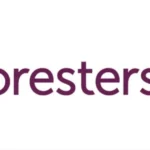Introduction
“Polo shirts can sometimes fit into a business casual dress code, but their appropriateness varies by industry and company norms. Always check your company’s dress policy to ensure your choice aligns with professional expectations.”
A polo shirt is a type of casual wear featuring a collar and buttons at the neck. It is often made of cotton or a blend of materials and is considered less formal than dress shirts. Polo shirts are commonly worn in various casual settings, including work environments that embrace a more relaxed dress code.
However, the appropriateness of a polo shirt for business casual attire can vary by industry and company culture. Understanding the context and specific dress code requirements is key to determining if a polo shirt meets the business casual standard.
Business casual is a dress code that combines the professional look of traditional business attire with the comfort and flexibility of casual wear. It typically includes items such as slacks, skirts, button-down shirts, and, in some cases, polos. The goal of business casual is to maintain a polished appearance while allowing for personal comfort and expression.
If you’re unsure whether a polo shirt fits your company’s business casual dress code, check your organization’s dress policy or consult with your HR department. This will ensure you make the right choice for professional attire.
Definition of Business Casual
Business casual is a dress code that combines the professional look of traditional business attire with the comfort and flexibility of casual wear. It typically includes items such as slacks, skirts, button-down shirts, and, in some cases, polos. The goal of business casual is to maintain a polished appearance while allowing for personal comfort and expression.
Overview of Polo Shirts

The polo shirt is a classic garment with a rich history. Originating from the sport of polo in the early 20th century, it features a collar, a placket with two or three buttons, and short sleeves. It is known for its versatility and comfort, making it a popular choice for various occasions, from casual outings to semi-formal events.
Polo Shirts in Business Casual Attire
In many workplaces, polo shirts are considered an acceptable option within the business casual dress code. They offer a blend of comfort and style, making them suitable for less formal business environments. However, their suitability can depend on factors such as the shirt’s fabric quality, fit, and color.
Comparison: Polo Shirts vs. Dress Shirts
Dress shirts are often regarded as a more formal option compared to polo shirts. They feature a structured collar, long sleeves, and are typically made from finer materials like cotton or linen. Polo shirts, with their more casual appearance, may not convey the same level of formality but offer greater ease and comfort.
Polo Shirts vs. Button-Down Shirts
While button-down shirts and polo shirts both fall under business casual attire, they differ in formality and style. Button-down shirts usually have a more structured look with a collar that buttons down, providing a more polished appearance. Polo shirts, in contrast, offer a relaxed and comfortable option with their soft collar and shorter sleeves.
Industry-Specific Guidelines for Polo Shirts
Acceptance of polo shirts as business casual attire can vary widely across industries. For instance:
- Technology and Creative Fields: Polo shirts are often acceptable and even preferred due to their relaxed nature.
- Finance and Law: More traditional fields may favor dress shirts and blazers over polo shirts.
Regional Variations in Business Casual Attire
Regional attitudes towards business casual attire, including polo shirts, can differ:
- United States: Polo shirts are commonly accepted in various business environments.
- Europe: Business casual may lean more towards formal attire, making polo shirts less common in professional settings.
Cultural Perspectives on Polo Shirts

Cultural norms also influence the perception of polo shirts in business casual attire. In some cultures, traditional business attire remains the standard, while others embrace the flexibility of business casual dress codes, including polo shirts.
Choosing the Right Polo Shirt for Business Casual
When selecting a polo shirt for business casual settings, consider:
- Fabric Quality: Opt for high-quality materials like pima cotton.
- Fit and Size: Ensure the shirt fits well and is not too tight or too loose.
- Color and Pattern: Stick to solid, muted colors or subtle patterns for a professional look.
Pairing Polo Shirts with Other Business Casual Clothing
To create a cohesive business casual outfit:
- Pair with Slacks or Chinos: For a polished look.
- Add a Blazer or Sweater: To elevate the outfit.
- Choose Appropriate Footwear: Such as loafers or dress shoes.
How to start a transportation business with one van?
Benefits of Wearing Polo Shirts in Business Settings
Polo shirts offer several advantages:
- Comfort: They provide a relaxed fit that enhances comfort.
- Versatility: Suitable for various occasions and easy to style.
- Breathability: Made from breathable fabrics, ideal for warmer climates.
Drawbacks of Polo Shirts in Business Casual
Some potential drawbacks include:
- Perceived Informality: May not always convey a professional image.
- Limited Formality: Less formal than button-down shirts or dress shirts.
Examples of Polo Shirt Dress Codes in Different Companies

- Tech Startups: Often embrace polo shirts as part of a relaxed dress code.
- Corporate Law Firms: May restrict polo shirts in favor of more formal attire.
Importance of A Polo Shirt in Business Casual
The importance of polo shirts in business casual attire lies in their ability to balance professionalism with comfort. They offer a versatile option that can be adapted to various business environments, provided they are chosen and styled appropriately.
Additional Tips
- Maintain Quality: Regularly check for wear and tear.
- Keep It Clean: Ensure the shirt is always clean and well-ironed.
- Adapt to the Environment: Adjust your outfit based on the company’s dress code and culture.
Pro And Cons
| Pros | Cons |
| Comfortable and Relaxed | May Appear Too Informal |
| Versatile for Various Occasions | Less Formal than Dress Shirts |
| Breathable Fabric for Warm Weather | Limited Professional Appeal |
| Easy to Maintain and Care For | May Not Be Suitable for All Industries |
Answers to key Questions
Can I wear a polo shirt to a business meeting?
Yes, a polo shirt can be appropriate for business casual meetings, especially in less formal industries. However, ensure it is high-quality and paired with professional attire like slacks or a blazer.
Are polo shirts acceptable in all business casual environments?
Not necessarily. While polo shirts are often acceptable in tech and creative fields, they might be less appropriate in more formal industries like finance or law. Always check your company’s dress code policy.
What type of polo shirt is best for a business casual setting?
Opt for a polo shirt made from high-quality fabric like pima cotton, in solid or subtle colors. Ensure it fits well and is free from logos or graphics for a more professional look.
How should I style a polo shirt for a business casual office?
Pair your polo shirt with tailored slacks or chinos and consider adding a blazer or a sweater for a more polished appearance. Avoid overly casual footwear like sneakers.
Can a polo shirt be worn to client meetings?
It depends on the client and industry. For client meetings, err on the side of caution and choose a more formal outfit if unsure. A well-chosen polo shirt may work if the client’s dress code aligns with business casual.
Conclusion
The polo shirt is a versatile piece that can be part of a business casual wardrobe, depending on the context and industry. While it offers comfort and flexibility, it may not always meet the formality required in certain professional settings.
By understanding the nuances of business casual attire and choosing the right polo shirt, professionals can effectively integrate this garment into their workwear.










